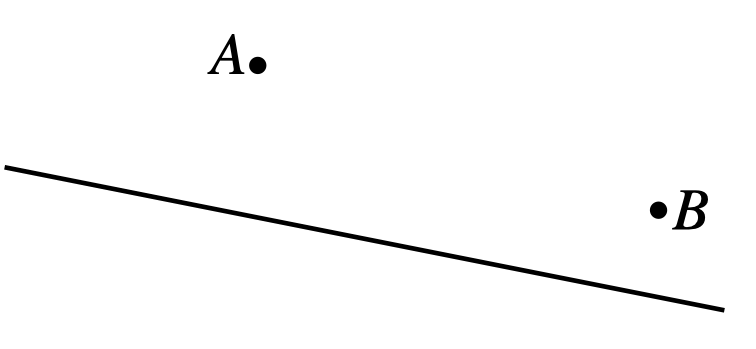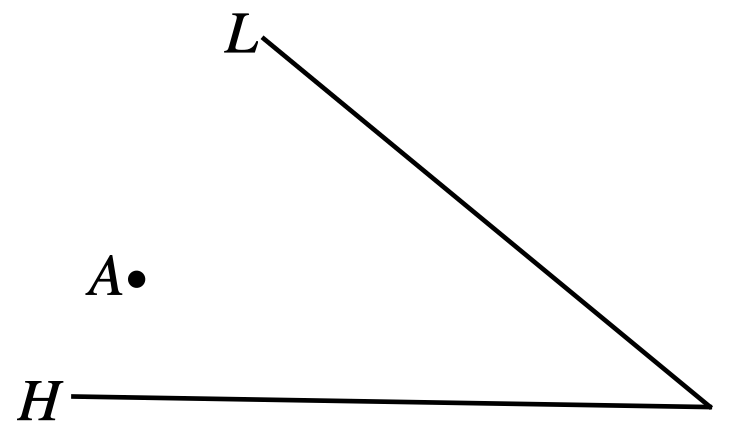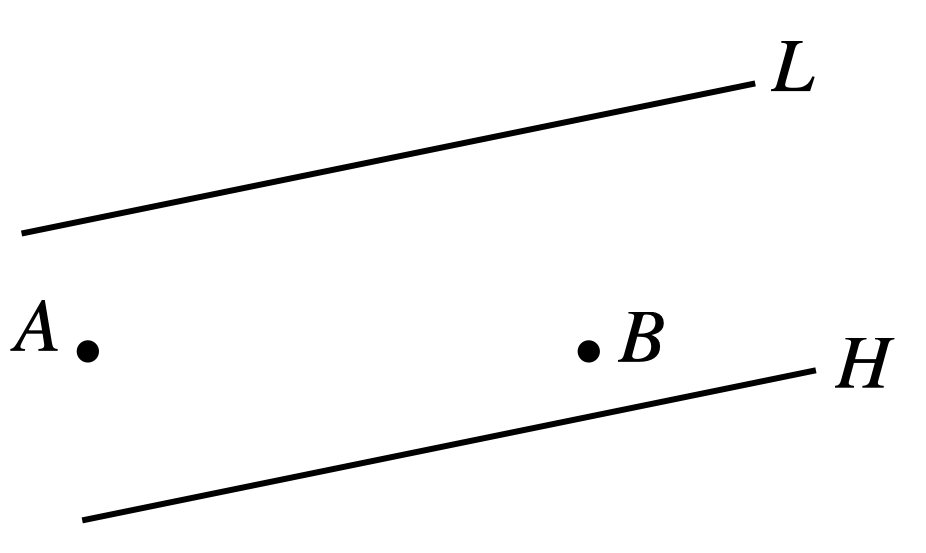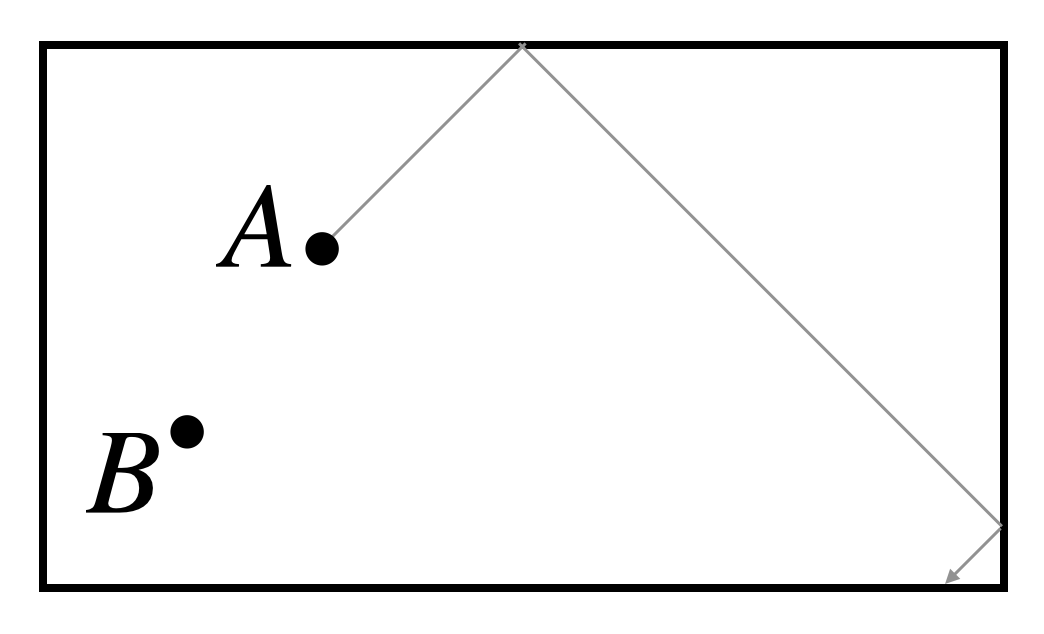Problems
In a field, there are two pegs, \(A\) and \(B\), placed \(15\) metres apart. Each peg has a small
ring on top, and a rope can slide freely through these rings.
You have one rope and two goats that want to graze the grass, but they
will fight each other if they can both reach the same spot.
The rope may be arranged in any way you choose: it could pass through
both rings, only one, or neither, depending on your setup.
For what lengths of rope can you arrange things so that the goats cannot
fight each other?
Long before meeting Snow White, the seven dwarves lived in seven different mines. There is an underground tunnel connecting any two mines. All tunnels were separate, so you could not start in one tunnel and somehow end up in another. Is it possible to walk through every tunnel exactly once without retracing your path?
There is a queue of \(n\) truth tellers and liars. The first person says, “more than half of us are liars". The second person says, “more than a quarter of us are liars". The third person says, “more than an eighth of us are liars", and so on, until the \(n\)th person says, “more than \(\frac{1}{2^n}\) of us are liars". Describe what the number of truth-tellers and liars could be, as well as their placement in the queue. Note that the solutions are not fixed numbers.
Fred starts running from point \(A\) and must reach point \(B\). On the way, he has to touch the fence shown as a straight line in the figure. It doesn’t matter where he touches the fence, as long as he does. What is the shortest path he can take?

Robbie and Paloma are playing football on a large, flat field. They both run at the same speed toward the ball. Where could the ball have been if Paloma reached it first?
Oliver starts running from point \(A\) in the figure below. He must touch line \(H\), and then line \(L\). What is the shortest path he can take?

Two ants move along the same straight line and can only move back and forth along it. The first ant moves twice as fast as the second. Where could you place a breadcrumb so that the slower ant reaches it first?
Two ants, Muffy and Chip, start on opposite sides of a circle. Muffy moves twice as fast as Chip, and both can only move along the circle’s edge. Where could a breadcrumb be placed so that they both reach it at the same time?
Two points, \(A\) and \(B\), lie between two lines \(L\) and \(H\). Draw the shortest path from \(A\) to \(B\) that touches \(L\), then \(H\), and finally reaches \(B\).

Ignat is playing pool and places a ball at point \(A\), as shown below. Can he bounce ball \(A\) off a ball placed at position \(B\), if the ball can only bounce off the top and right edges of the pool table?
When a ball bounces off the edge, it does so just like light reflecting in a mirror: the angle at which it hits the edge is the same as the angle at which it bounces away.
